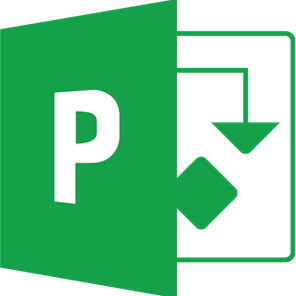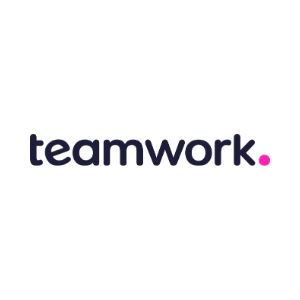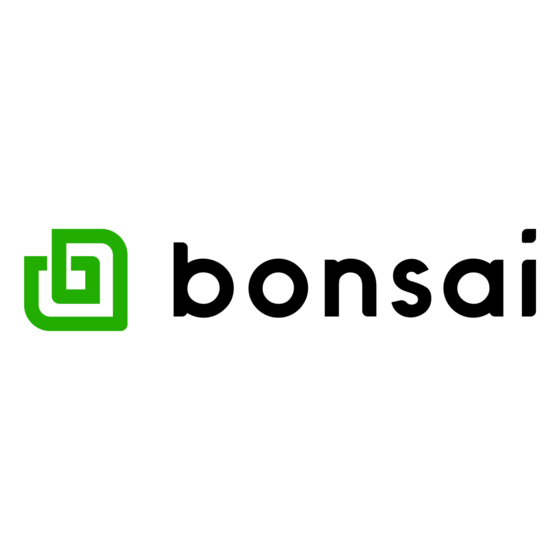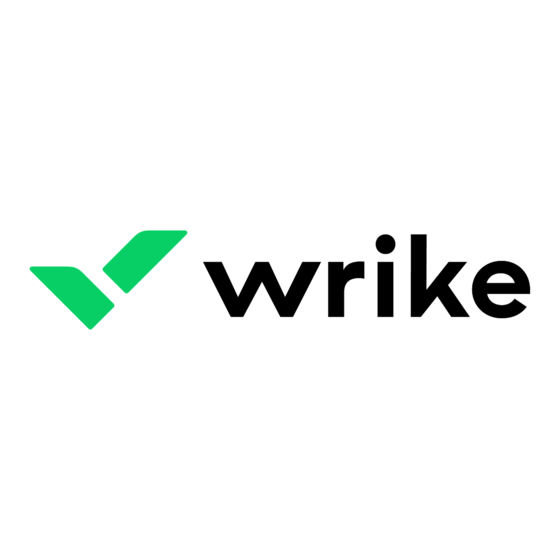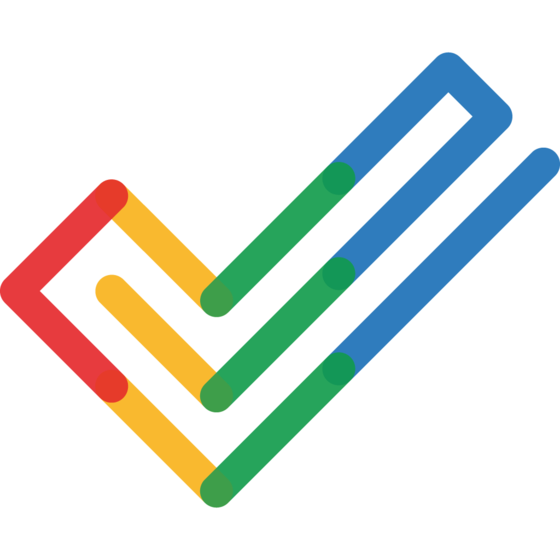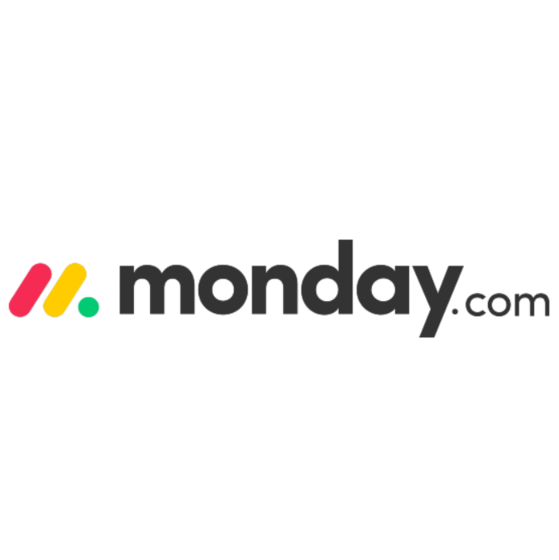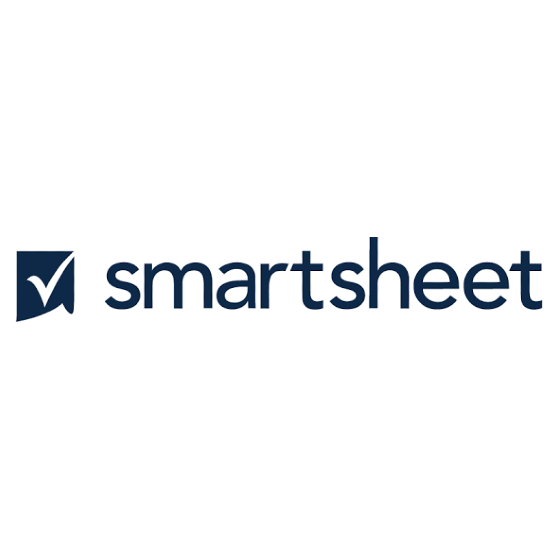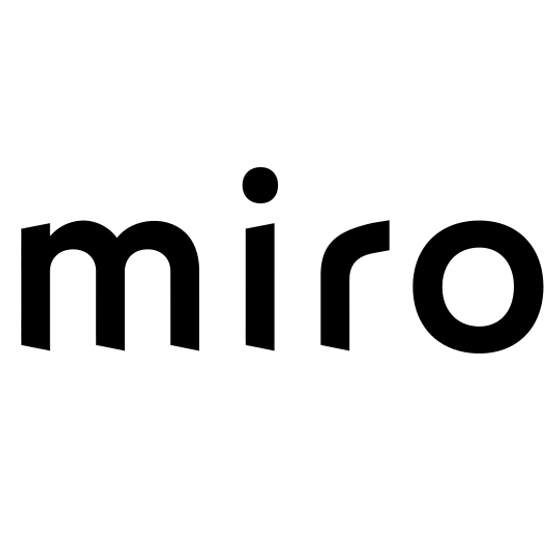10 Best Alternatives To Resource Guru Shortlist
Here are my picks for the best alternatives to Resource Guru.
If you're finding that Resource Guru isn't the right project management software tool for your team, there are lots of Resource Guru alternatives to help you manage your resources and projects and get a clear view of what everyone is working on.
Resource Guru might be missing specific features or be too expensive for your budget, so I've tested and reviewed dozens of alternatives to Resource Guru to help you find a replacement. Here are my recommendations for the best Resource Guru alternatives.
What Is Resource Guru?
Resource Guru is a scheduling tool designed to help you plan projects and manage people, equipment, budget, and other resources. It can help you avoid challenges like overbooking, unbalanced workloads, or misalignment within your project portfolio. It provides a clear view of resource availability to help you plan and execute projects.
Why Trust My Software Reviews
I’ve been testing and reviewing project management software since 2012. As a project manager, I know how critical and difficult it is to make the right decision when selecting software. I invest in deep research to help my audience make better software purchasing decisions.
I’ve tested more than 2,000 tools for different project management use cases and written over 1,000 comprehensive software reviews. Learn how I stay transparent and my software review methodology.
Compare Specs Side-by-Side
Compare pricing and other specs for each of my picks for the best Resource Guru alternatives below.
| Tool | Best For | Trial Info | Price | ||
|---|---|---|---|---|---|
| 1 | Best for detailed capacity planning | 14-day free trial + free demo available | From $7/user/month | Website | |
| 2 | Best for robust project management | 30-day free trial | From $10/user/month (billed annually) | Website | |
| 3 | Best for client work management | Free plan available | From $10.99/user/month (min 3 users, billed annually) | Website | |
| 4 | Best for project management with CRM integration | Free trial available | From $40/month (billed annually) | Website | |
| 5 | Best for professional services automation | 14-day free trial + free demo available | From $30/user/month (billed annually) | Website | |
| 6 | Best for agile teams | 7-day free trial + free plan available | From $7.16/user/month (billed annually, min 5 seats) | Website | |
| 7 | Best for visual project planning | 14-day free trial | From $5/user/month (billed annually) | Website | |
| 8 | Best for agency forecasting | 7-day free trial | From $9/user/month (billed annually) | Website | |
| 9 | Best for workload visibility | Free plan available | From $10/user/month (billed annually) | Website | |
| 10 | Best for advanced task management | Free plan available | From $4/user/month (billed annually) | Website |
-

monday.com
Visit WebsiteThis is an aggregated rating for this tool including ratings from Crozdesk users and ratings from other sites.4.6 -

Smartsheet
Visit WebsiteThis is an aggregated rating for this tool including ratings from Crozdesk users and ratings from other sites.4.4 -

Miro
Visit WebsiteThis is an aggregated rating for this tool including ratings from Crozdesk users and ratings from other sites.4.8
Best Resource Guru Alternatives Reviews
Here’s my detailed analysis and overview of each Resource Guru alternative. I cover the advantages and drawbacks, features, and use cases where they shine the most.
Hub Planner is a project and resource management tool designed to help teams plan, schedule, and track work.
Why Hub Planner is a good Resource Guru alternative: I chose Hub Planner because of its capacity planning and timesheet features. Capacity planning helps you allocate resources effectively by filtering team members based on location, skill sets, and availability, preventing overbooking. Meanwhile, the integrated timesheet module tracks actual time spent versus scheduled time, providing insights for better forecasting and budgeting. Together, these features make Hub Planner a great choice for teams needing precise resource management.
Standout Features & Integrations
Features include dependencies, resource requesting, global public holidays, fixed costs, time off in lieu (TOIL), dashboards and reports, project management tools, custom fields, approval workflow, smart groups, and scheduler customization.
Integrations include OneLogin, Google Calendar, Apple Calendar, Outlook, Slack, Teams, Okta, Zapier, Basecamp, Azure, and Power Automate.
Pros and cons
Pros:
- Vacation and PTO management within the scheduling interface
- Heat map visualization for identifying resource gaps
- Effective resource scheduling and capacity planning features
Cons:
- Could offer more robust scheduling conflict management
- No mobile app
Microsoft Project is designed to assist in planning, executing, and tracking projects of any size.
Why Microsoft Project is a good Resource Guru alternative: I picked Microsoft Project because it is renowned for its ability to handle intricate project details with precision. When comparing it to other project management tools, its extensive cloud-based feature set and integration capabilities make it stand out. I chose this tool for its superior scheduling and resource allocation functions, which are essential for large, complex projects.
Standout Features & Integrations
Features include project planning and scheduling, task management, resource allocation, timeline tracking, Gantt charts, budget management, risk management, collaboration tools, reporting, and analytics.
Integrations include Microsoft Teams, Microsoft Excel, Microsoft SharePoint, Microsoft Power BI, OneDrive, Outlook, Microsoft Planner, Azure DevOps, Skype for Business, and Microsoft Dynamics 365.
Pros and cons
Pros:
- Extensive integration with other Microsoft products
- Strong resource management tools
- Highly detailed and customizable project planning features
Cons:
- Requires Microsoft ecosystem for full functionality
- Steeper learning curve compared to simpler project management tools
Teamwork is designed to help teams manage their work and collaborate effectively. It offers features tailored for managing client projects, including time tracking, billing, and client collaboration tools.
Why Teamwork is a good Resource Guru alternative: I picked Teamwork because it excels at managing client work, making it easier to track billable hours, collaborate with clients, and ensure projects stay on schedule. After evaluating multiple project management tools, I found Teamwork's client-focused features and ease of use set it apart.
Standout Features & Integrations
Features include advanced time tracking, billing, and invoicing features that are essential for client work. It also includes task management, project templates, and Gantt charts to help teams plan and execute projects efficiently.
Integrations include Slack, Google Drive, Microsoft Office, and QuickBooks.
Pros and cons
Pros:
- Flexible project templates
- Strong client collaboration tools
- Comprehensive-time tracking and billing features
Cons:
- Limited storage on lower-tier plans
- Higher pricing for advanced features
Teamleader is a business management tool designed to help small and medium-sized businesses handle their projects, CRM, and invoicing all in one place. With Teamleader, you can manage customer relationships, track sales opportunities, create and send invoices, and keep projects on schedule from a single platform.
Why Teamleader is a good Resource Guru alternative: Teamleader is a solid alternative to Resource Guru if you're looking for more than just resource scheduling. It offers project tracking features, including time tracking and task delegation. Plus, its CRM tools let you manage customer interactions, something Resource Guru doesn't cover.
Standout Features & Integrations
Features include deal tracking, quote generation, time billing, online payments, recurring invoices, and expense management.
Integrations include Gmail, Outlook, Google Calendar, PayPal, Stripe, LinkedIn, Mailchimp, Campaign Monitor, Google Sheets, and Power BI.
Pros and cons
Pros:
- Integrates with popular tools
- Combines project management, CRM, and invoicing in one tool
- Real-time project tracking
Cons:
- Interface could be more intuitive
- Limited customization options
Scoro is a comprehensive business management software that streamlines project management, resource planning, sales and CRM, and finances. Its integrated platform includes handy features like detailed reporting, dashboards, and invoicing, designed to enhance productivity and oversight.
Why Scoro is a good Resource Guru alternative: I picked Scoro because it excels in providing an all-in-one solution that integrates project management, time tracking, CRM, and financial management. Scoro really focuses on setting and tracking key performance indicators (KPIs) and then linking them to relevant items within each project outline. This way, every action item is tied to the bigger picture of the goals of your company. Scoro stands out for its detailed planning features that enable detailed visualizations of project timelines, dependencies, and milestones. Its interactive Gantt charts allow users to map out the entire project lifecycle, adjust timelines easily, and see the impact of changes in real time.
Standout Features & Integrations
Features include time tracking, in-depth reporting capabilities, real-time dashboards, goal-setting and project planning, and advanced reporting tools.
Integrations include Xero, QuickBooks, Zapier, and Microsoft 365.
Pros and cons
Pros:
- Robust integration options
- Strong reporting and analytics
- Comprehensive project management features
Cons:
- Minimum seat requirement for the lowest pricing tier
- Complexity may require a learning curve
Jira is a powerful tool designed for every member of your software team to plan, track, and release great software.
Why Jira is a good Resource Guru alternative: I chose Jira for the list because it offers a robust set of features tailored for agile development, including scrum and kanban boards, backlogs, and agile reporting. Its ability to integrate with a multitude of developer tools also makes it a standout choice for teams looking to streamline their agile workflows.
Standout Features & Integrations
Features include customizable scrum and Kanban boards, backlogs for sprint planning, and detailed reporting for insights into team performance. It also offers advanced roadmaps for long-term planning and tracking work across multiple teams.
Integrations include Confluence, Bitbucket, GitHub, GitLab, Jenkins, Slack, Trello, Microsoft Teams, Google Sheets, and Zendesk.
Pros and cons
Pros:
- Scalable for teams of any size
- Extensive reporting and insights for agile teams
- Customizable workflows to match team needs
Cons:
- The interface can be overwhelming due to the number of features
- May require additional training for new users
Trello is a web-based project management application that helps teams manage projects and tasks visually. It employs boards, cards, and lists that allow for intuitive and visual organization of tasks.
Why Trello is a good Resource Guru alternative: I chose Trello for the list because its visual project planning capabilities are exceptional. The use of boards, cards, and lists makes it easy to organize tasks and projects, which is why I believe it stands out as a good alternative to Resource Guru for those who prefer a more visual approach to project management.
Standout Features & Integrations
Features include customizable boards, lists, and cards, drag-and-drop interface, collaboration tools with comments and attachments, due dates and reminders, integration with various apps and services, automation with Butler, and mobile and desktop apps for on-the-go access.
Integrations include Google Sheets, Gmail, Google Calendar, Slack, Zapier, Webhooks by Zapier, Google Forms, and Paths by Zapier.
Pros and cons
Pros:
- Wide range of power and integrations
- Built-in automation with Butler
- Visual project management with boards, cards, and lists
Cons:
- Challenges with user permissions management
- Can become cumbersome as projects grow
Bonsai Agency Software is a business management platform designed for agencies to manage projects, clients, and teams in one place.
Why Bonsai Agency Software is a good Resource Guru alternative: Bonsai's resource planning and forecasting tools allow you to allocate work based on team capacity and track utilization. You can monitor workloads in real time and predict staff shortages ahead of new projects. This helps ensure your team has the bandwidth to deliver on projects before they start. The time-tracking and timesheet features also let your team easily log hours, giving you a clear view of projects, capacity, and budgets.
Standout Features & Integrations
Features include client management, team collaboration, financial reporting, custom billable rates, workload monitoring, task prioritization, profitability reports, project timelines, capacity tracking, staff shortage prediction, budget forecasting, and real-time progress tracking.
Integrations include Stripe, QuickBooks Online, Zapier, Calendly, Xero, Google Sheets, HubSpot, FreshBooks, Slack, Google Drive, Trello, and Microsoft Outlook.
Pros and cons
Pros:
- Ability to manage projects, clients, and finances in one place
- Customizable templates for proposals, contracts, and invoices
- Effective time tracking and invoicing features
Cons:
- Some key integrations are limited to higher tier plans
- Mobile app is limited compared to desktop version
Wrike is a project management tool that helps teams organize tasks, manage projects, and collaborate effectively. It offers various features to assist in planning, tracking, and completing work efficiently.
Why Wrike is a good Resource Guru alternative: Wrike's resource management capabilities make it a strong alternative to Resource Guru. You can allocate tasks based on team members' availability and skill sets, ensuring balanced workloads and preventing burnout. The workload view provides a clear picture of each team member's assignments, helping you adjust resources as needed to meet deadlines. Additionally, Wrike's time-tracking feature allows your team to log hours directly within tasks.
Standout Features & Integrations
Features include dashboards, Gantt charts, Kanban boards, proofing, approvals, cross-tagging, project resource planning, automation, custom item types, mobile and desktop apps, and AI.
Integrations include Salesforce, Microsoft Teams, Zoom, Adobe Creative Cloud, Google Drive, Microsoft SharePoint, OneDrive, Wrike for Gmail, Google Sheets, Power BI, Miro, and Trello.
Pros and cons
Pros:
- Various project views
- Good resource management features
- Workflow automation capabilities
Cons:
- Can be complicated to learn the platform
- Limited storage on lower-tier plans
Zoho Projects is an online project management platform designed to help teams efficiently plan, track, and collaborate on projects.
Why Zoho Projects is a good Resource Guru alternative: I like its advanced task management capabilities, which allow you to break down complex projects into manageable tasks, set dependencies, and prioritize them effectively. This feature ensures that your team can focus on the most critical activities and track progress efficiently. Additionally, Zoho Projects provides detailed time tracking functionalities that help you monitor how time is spent on each task.
Standout Features & Integrations
Features include issue tracking, team collaboration, task automation, Gantt charts, task management, charts and reports, time tracking, sprints, bug racking, and CRM.
Integrations include Cliq, TeamInbox, WorkDrive, Office Suite, Calendar, Bookings, ToDo, Shifts, PDF Editor, Office Integrator, ZeptoMail, People, Recruit, People Plus, and Expense.
Pros and cons
Pros:
- Comprehensive features like task scheduling, budget management, and time-tracking
- Allows for customizable dashboards
- Process automation capabilities
Cons:
- Customization options can be overwhelming
- Complex setup for certain features
See how Resource Guru compares to competitor Float here.
Other Resource Guru Alternatives
Below is a list of additional Resource Guru alternatives that I shortlisted, but which didn’t make my top list. It’s worth checking them out if you didn’t find what you’re looking for above.
- Float
For resource scheduling
- Saviom
For enterprise resource planning
- Smartsheet
For spreadsheet-like project management
- Kantata
For creative and professional services
- Paymo
For small business management
- monday.com
For customizable workflow templates
- Basecamp
For team communication
- Asana
For goal alignment
- TeamGantt
For Gantt chart creation
- Forecast App
For AI-driven insights
Related Project Management Reviews
If you still haven't found what you're looking for here, check out these other project management tool reviews we've curated for you:
- Gantt Chart Maker
- Productivity Tools
- Project Tracking Software
- Project Scheduling Software
- Project Management Software
- Resource Management Software
Resource Guru Alternatives Selection Criteria
When selecting the best Resource Guru alternatives, I considered common buyer needs and pain points related to resource management software like the need for resource tracking and integrations with existing tools. I also used the following framework to keep my evaluation structured and fair:
Core Functionality (25% of total score)
To be considered for inclusion in this list, each solution had to fulfill these common use cases:
- Manage team scheduling
- Allocate resources efficiently
- Track project timelines
- Monitor resource utilization
- Generate reports on resource allocation
Additional Standout Features (25% of total score)
To help further narrow down the competition, I also looked for unique features, such as:
- AI-driven resource recommendations
- Customizable dashboards
- Integration with third-party applications
- Mobile app availability
- Advanced analytics and insights
Usability (10% of total score)
To get a sense of the usability of each system, I considered whether each tool offered the following:
- Intuitive user interface
- Customizable workflows
- Easy navigation
- Responsive design
- Accessibility features
Onboarding (10% of total score)
To evaluate the onboarding experience for each platform, I considered availability of the following:
- Training videos
- Interactive product tours
- Templates for quick setup
- Webinars for training
- Chatbots for immediate assistance
Customer Support (10% of total score)
To assess each software provider’s customer support services, I considered whether they offer the following:
- 24/7 support
- Multiple support channels
- Response time for inquiries
- Access to a knowledge base
- Quality of support documentation
Value For Money (10% of total score)
To evaluate the value for money of each platform, I considered the following for each tool:
- Cost-effectiveness for features offered
- Availability of different pricing tiers
- Transparency in pricing
- Discounts for annual subscriptions
- Return on investment potential
Customer Reviews (10% of total score)
To get a sense of customer satisfaction, I considered the following when reading customer reviews:
- Overall satisfaction rating
- Frequency of positive feedback
- Commonly reported issues
- Praise for specific features
- Recommendations by users
Why Look for a Resource Guru Alternative?
While Resource Guru is a good choice of resource management software, there are a number of reasons why some users seek out alternative solutions. You might be looking for a Resource Guru alternative because:
- Your team is outgrowing its scalability options
- You need expense tracking features
- Your team requires more integration options
- You need budget management capabilities
- Your team demands more geographic control
- You need advanced permission settings
Resource Guru Key Features
Here are some of the key features of Resource Guru to help you contrast and compare what alternative solutions offer:
- Resource scheduling: Create and assign resources with an intuitive drag-and-drop interface. You should be able to schedule multiple resources at once to simplify your team's planning process.
- Clash management system: Prevent overbooking and make sure resources are allocated efficiently without conflicts. This helps you manage your team's workload effectively.
- Leave management: Manage team leave and absences and get a clear overview of who's available at any given time. This helps with planning and scheduling.
- Granular permissions: Set specific permissions for each user to control access to different parts of the tool. This makes sure team members only see and work on what they're supposed to.
- Custom fields: Use custom fields to build a skills database or tag geographies, which helps you manage your team's capabilities and organize remote teams efficiently.
- Time tracking: Pre-filled timesheets based on schedules make time logging quick and easy and let your team focus on their tasks instead of administrative duties.
- Integrations with calendar apps: Sync events with external calendars like Outlook and Google Calendar to keep all your appointments and schedules in one place.
- Resource forecasting and capacity planning: Visual availability bars and reporting tools help you forecast workload, plan capacity, and make sure your team isn't over or underutilized.
What’s Next?
Want to connect with other digital project managers to share resources and best practices? Join our membership community and get access to 100+ templates, samples, and examples, and connect with 100s of other digital project managers in Slack.




